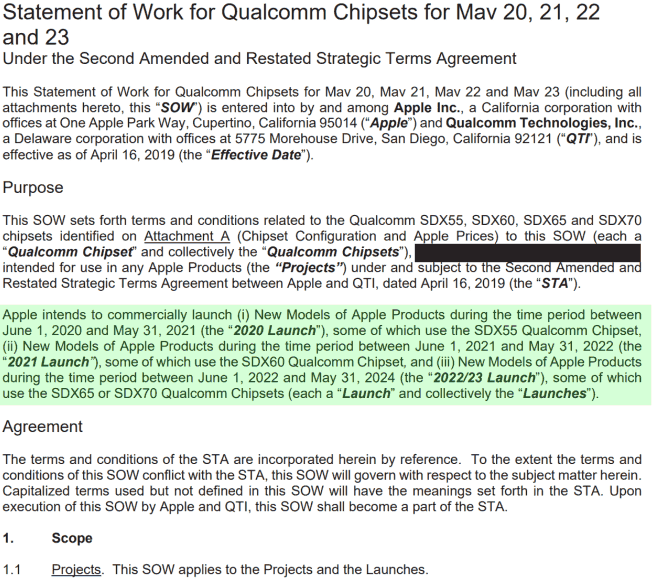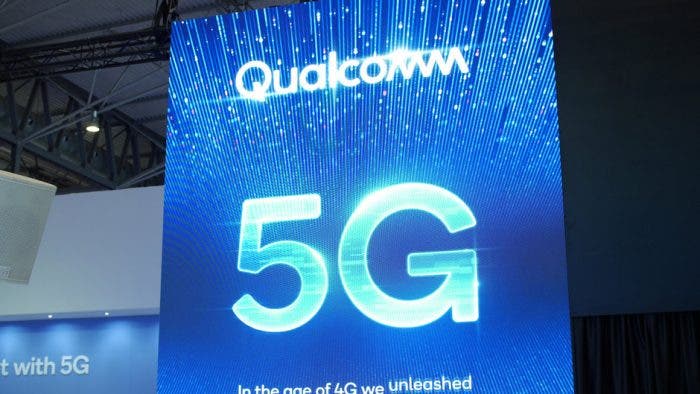Samsung, Huawei, and others have integrated 5G baseband into self-developed processors and. Apple is said to have a similar layout plan, but details are still mostly undocumented rumors. However, it can be confirmed that its internal baseband chip will take quite a few years to develop. During this period, Apple will rely on mature three-party suppliers. According to media reports, a document from the US International Trade Commission (ITC) revealed a sensitive part of the agreement signed by Apple and Qualcomm some months ago.

Simply put, Apple will need to buy Qualcomm’s 5G baseband for the next 4 years at least. Among them, it will use the X55 baseband from June 1, 2020, to May 31, 2021. The X60 will enter the frame from June 1, 2021, to May 31, 2022, and X65 or X70 will be used from June 1, 2022, to May 31, 2024.
Of course, there are speculations that Apple may be able to adopt a similar approach to Samsung. This will only be possible after its research for the baseband is ready. Some iPhone / iPad will use a full set of independent solutions while the company is still purchasing Qualcomm chips.
The X55 baseband is also currently used in Snapdragon 865 5G mobile phones. It supports 2G ~ 5G global full Netcom and is compatible with Sub 6GHz and mmWave millimeter wave bands. At least from this agreement, there should be no suspense with regards to the “iPhone 12” series chip this fall.





